Turn up the difficulty and Wildermyth becomes XCOM with magic
A dash of death and doom takes a brilliant story engine to the next level.
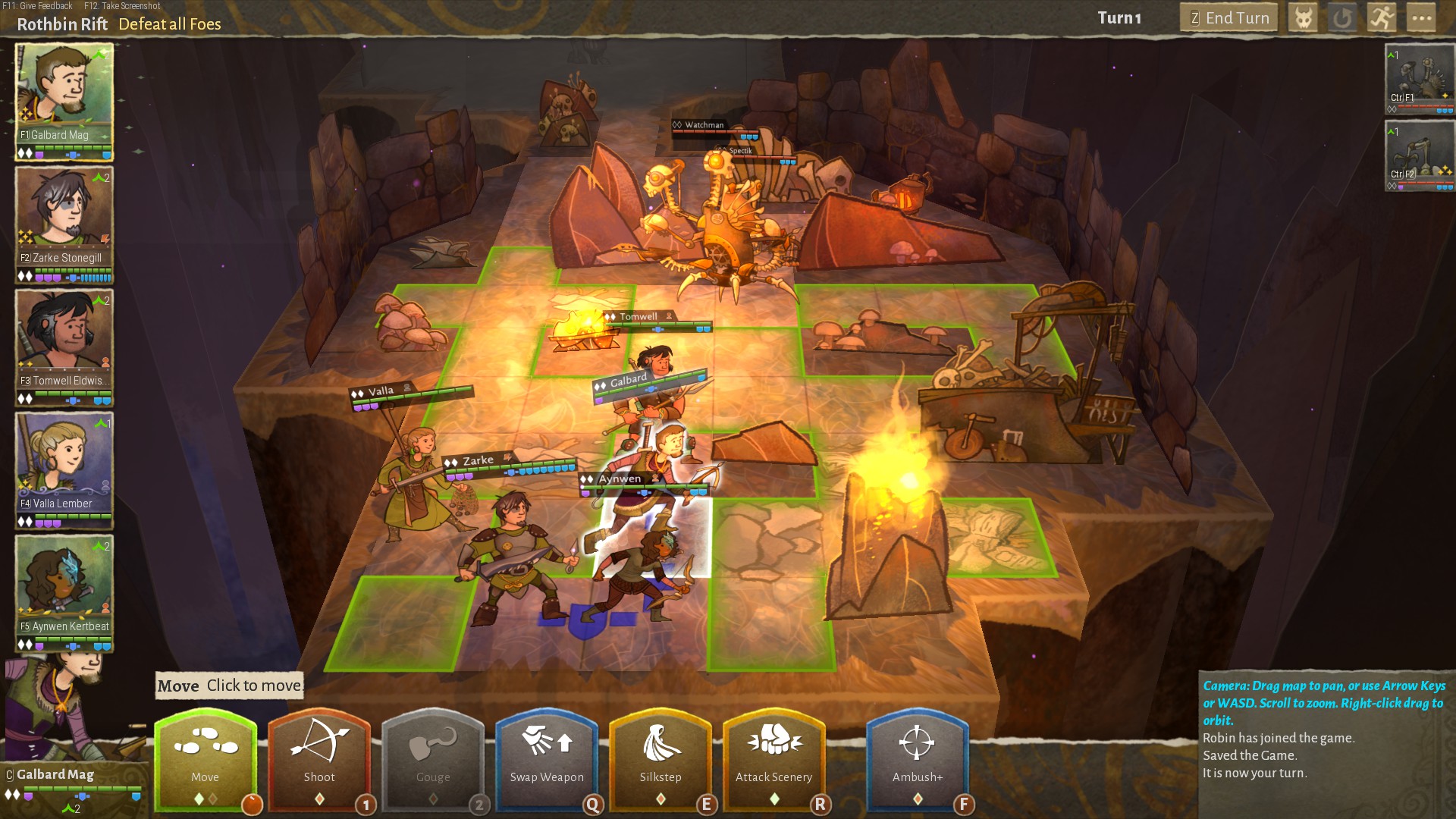
On my first few campaigns of Wildermyth, it was the narrative that wowed me. Despite some uneven writing, it’s some of the best procedurally generated storytelling I’ve ever seen in a game. As our staff writer Rachel so correctly observed, its random events and evolving characters knit together into an experience that’s about as close as you can get to the feel of a tabletop roleplaying game on your own.
The nuts and bolts of the game—that is, its turn-based combat and campaign map meta-layer—I was initially less impressed by. Despite some interesting ideas, combat was fairly simple and pretty easy, especially once I got some good gear and level ups. On the campaign map, I never felt pressed for time, able to leisurely clear the countryside of threats and fortify key locations against reprisal. The big, important fights of each chapter were anti-climactic, the full force of my overpowered heroes ending them before they’d really begun.
I concluded that was just the kind of game it was, a great story generator, with some enjoyable enough filler between narrative events. It was only when I cranked up the difficulty that the game’s true depth shone through – and comparisons to Firaxis’ XCOM games started to feel apt.
The first step up from the default difficulty of ‘Adventurer’ is called ‘Tragic Hero’. "Seems a bit hyperbolic," I thought, as I loaded into a new campaign. In the first battle, my fledgling heroes died so fast that at first I thought it was a bug. My helpless farmhands, not even experienced enough to have earned a class yet, were literally taken out one-by-one by an acid-spewing bone-automaton before I could fight back.
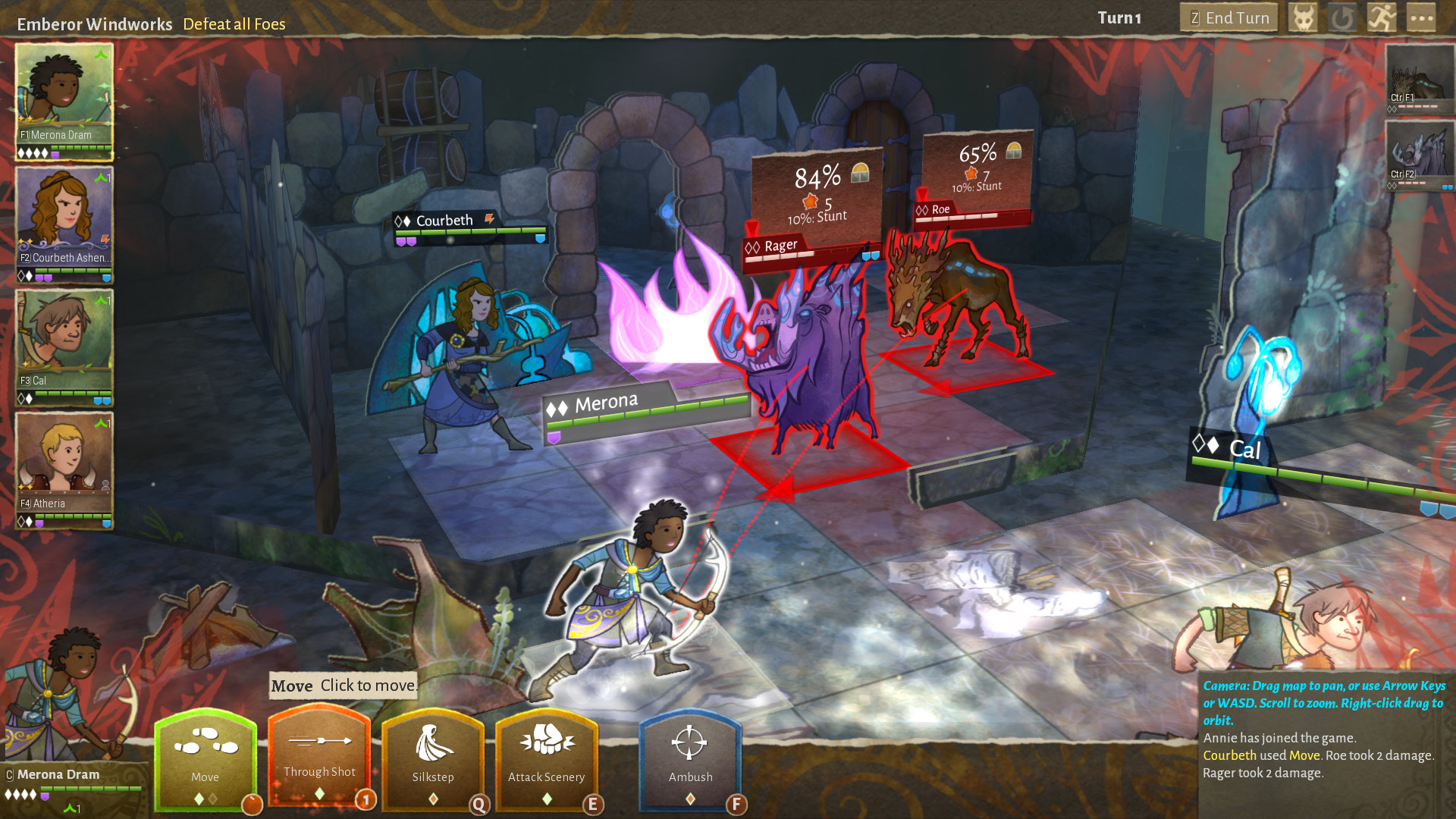
Wall together now
Ok, back to the drawing board. Over several disastrous first chapter attempts, I started to peel back the layers of Wildermyth’s combat system, figuring out how to survive in this suddenly hostile world. I learned how many bad habits I’d picked up over my journey so far.
Bad habits like leaving my party spread out, when ‘walling’ is key to keeping heroes alive. This system grants a damage resistance buff to any characters that are adjacent by the end of their turn, and when you’re forced to use it, it makes every turn a puzzle of positioning. You have to know not only what you need each character to do each turn, but where they need to end up in order to maintain formation. And what delicious thematic gravy, for a game where the relationships between characters are so important to buff them for sticking together.
Keep up to date with the most important stories and the best deals, as picked by the PC Gamer team.
I learned to pick my targets more carefully. The enemies arrayed against you in Wildermyth— separated into five distinct factions, each with about 10 different types—have wildly different abilities. Prioritising who you need to gun for first, and what you need to do to get to them, is vital. In other words, the way you avoid getting one-shot by a bone-bot is to get them before they get you, not to waste time on running interference.
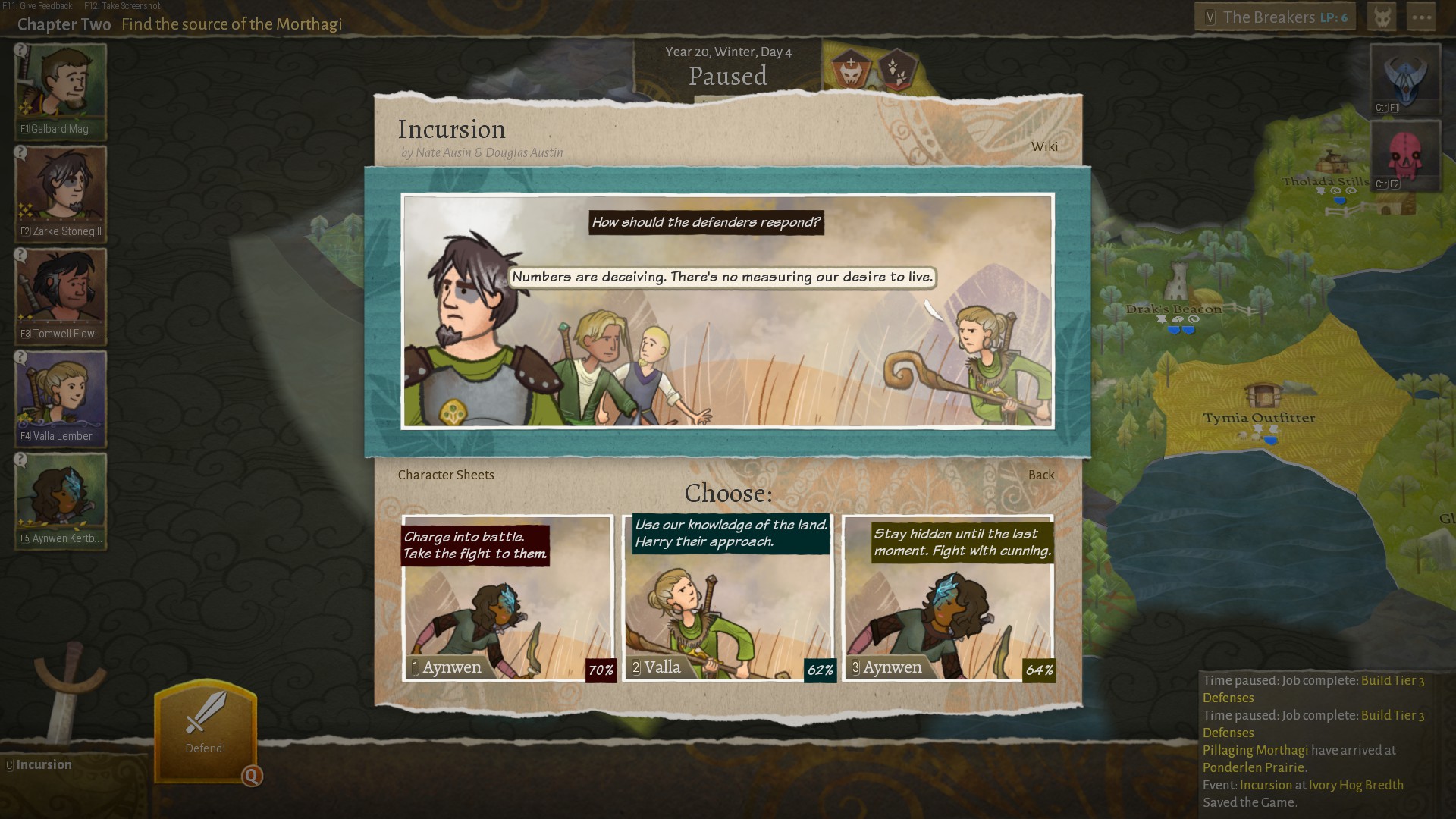
The magic system—in which mystics ‘interfuse’ with environmental objects in order to cast appropriate spells out of them—turns from a clever novelty to a battlefield scavenger hunt of possibilities. When I see a clanking Morthagi construct, I know that what I want is something made of wood, so I can shred their armour with a Splinterblast. If a hulking Gorelord is descending on my vulnerable archer, a tattered banner I can animate and tie them up with is a lifesaver. But you won’t always find what you want. Different environments inherently offer different tools, cleverly preventing you from ever relying on a certain arsenal of spells—you have to turn whatever is around you to your advantage.
The campaign map, too, is suddenly full of tough choices. Do you have time to rebuild that village, if it means ticking closer to another invasion event? Should you split the party, getting more done in less time but exposing everyone to danger? Can you afford to stifle your enemy’s efforts to upgrade their soldiers if it means you won’t have the resources left to recruit new heroes? Where once I could methodically clear every nook and cranny, now I feel perpetually under pressure, grabbing what I can before racing to the next chapter.
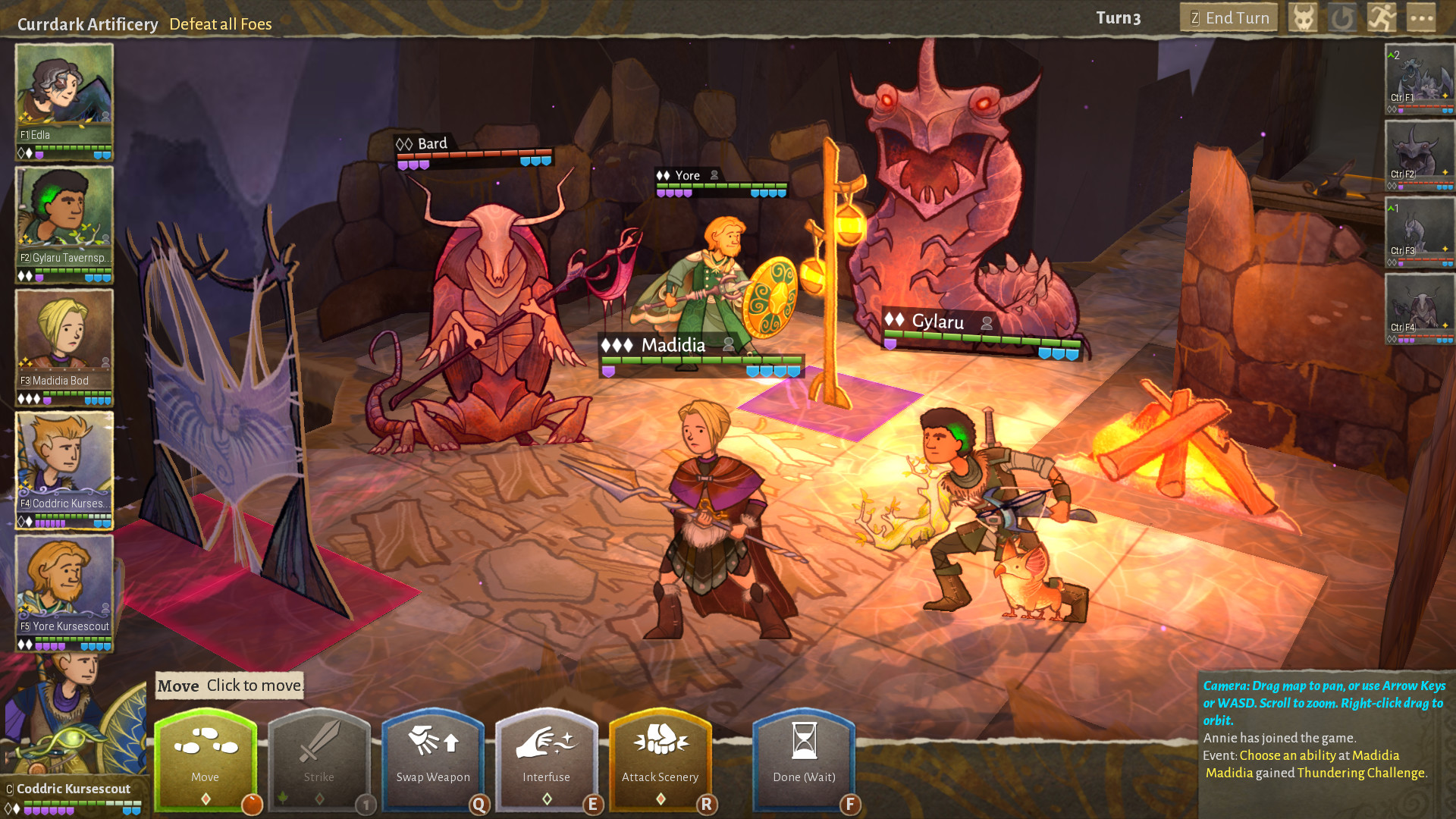
Under pressure
It’s a feeling I’m familiar with - it evokes the same quiet panic as XCOM. The ins-and-outs of the strategy are different, but what Wildermyth recreates is that wonderful sense of trying to solve a huge, complicated, unpredictable puzzle where every move you make is weighty with consequence. When you know that a bad call won’t just affect the outcome of one battle, but potentially your whole campaign—and the lives of your heroes—there’s a wonderful dramatic tension in every moment.
That formula - combining strategy, management, and permadeath - is so compelling when it’s done right, but few of XCOM’s imitators have really managed to spin it into gold in quite the same way. Wildermyth really cracks the code, at least once it stops being gentle with you. And in many ways it actually goes one better.
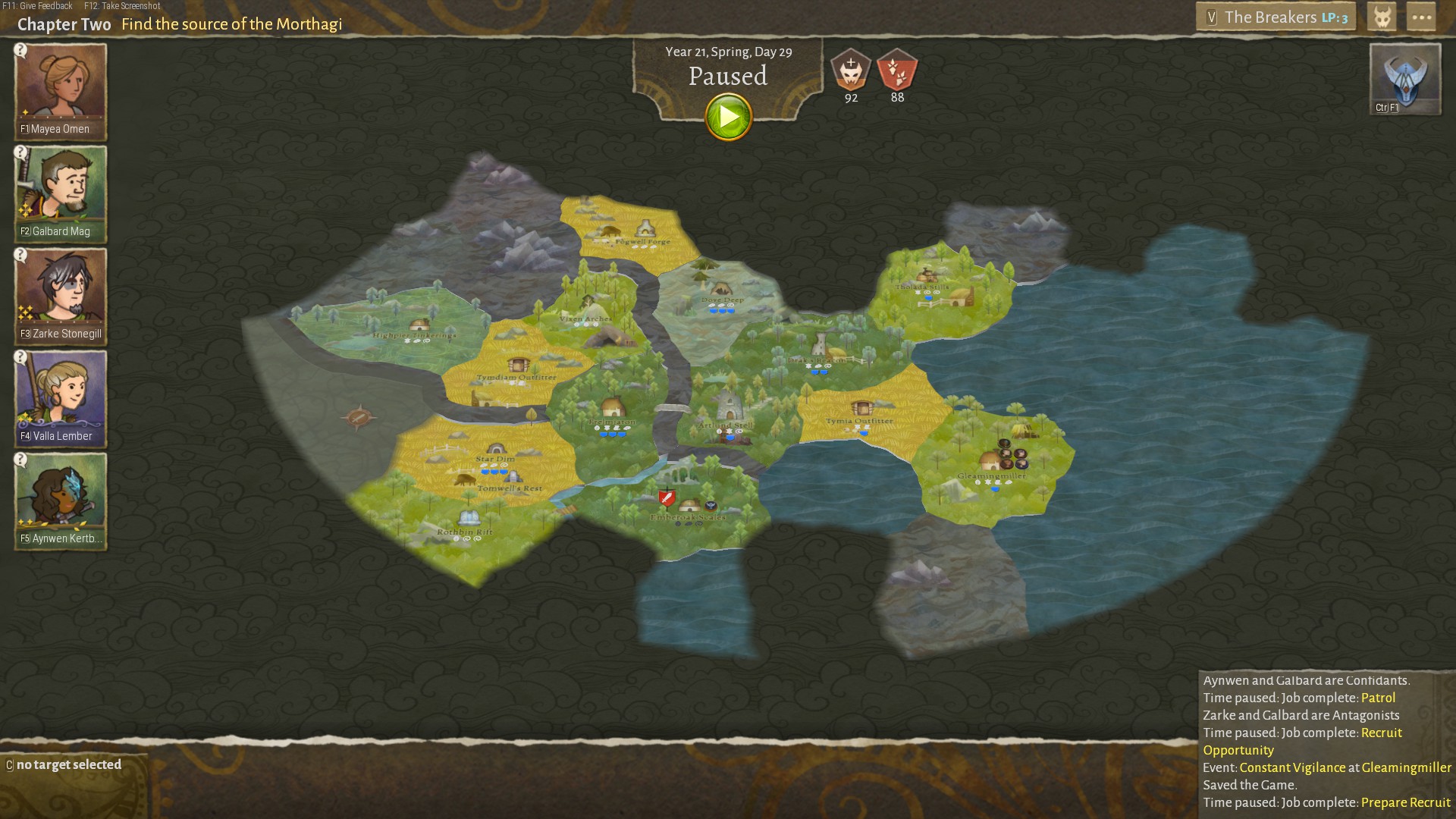
Wildermyth’s story engine adapt perfectly to the changing tone. A tougher, crueler, more demanding campaign organically generates a darker, more desperate story. In XCOM, your soldiers can only live or die. In Wildermyth, they can lose a limb, sacrifice a priceless artifact, watch their own child fall in battle, and give up their life for another’s. Your hero’s home town might be fortified, defended, destroyed, rebuilt, and even taken over by a cult.
When a hero dies, it’s a crushing blow—and then the game asks you what you want to do about it. Will you leave them to be forgotten by the history books? Or will you build them a memorial, securing their legacy but ticking down yet more precious days? What a wonderfully bleak choice to be offered by a game that, on first impression, seems so harmless.
‘Tragic Hero’ indeed. Don’t even ask me about the next step up: ‘Walking Lunch’.

Formerly the editor of PC Gamer magazine (and the dearly departed GamesMaster), Robin combines years of experience in games journalism with a lifelong love of PC gaming. First hypnotised by the light of the monitor as he muddled through Simon the Sorcerer on his uncle’s machine, he’s been a devotee ever since, devouring any RPG or strategy game to stumble into his path. Now he's channelling that devotion into filling this lovely website with features, news, reviews, and all of his hottest takes.

